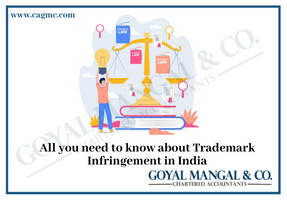
In Intellectual property rights (IPR), the traditional system of registration has faced several issues from inefficiency to susceptibility to fraud. Entering blockchain technology is a groundbreaking innovation, which transforms the manner we secure and manage IP rights. Blockchain is the temper and decentralized ledger underlying cryptocurrencies like Bitcoin and is now stepping towards the intellectual property, transparent, promising a more secure, and potential registration process. In the article, we are going to explain to you how blockchain is reshaping the Registration of Intellectual Property Rights.
| Table of Content |
Brief about Blockchain technology
The concept of “blockchain” is derived from the data being framed and lined together with blocks. Each block has a list of transactions, timestamps, and references to the previous block, making a chain of blocks. Blockchain is a distributed ledger and reorganized technology, which can transparent, and secure recording of transactions across a network of computers.
Here are certain key components of blockchain:
- Transparency;
- Distributed ledger;
- Cryptographic security;
- Immutability;
- Decentralization;
- Smart Contracts;
- Consensus mechanisms
Registration of a design or trademark and evidence of use
Blockchain technology can make the process of registration for trademarks and designs more efficient by avoiding some of the steps. In certain cases of trademark applications, where it is not possible to give that the trademark is distinctive, it will be significant to create the mark that has acquired distinctiveness by use. To assume that certain changes were made in the law to permit for actual use of a mark to be added and recorded on the official register, details and evidence of actual use of a trademark in trade. Along with the frequency of such use, can be simply shared and available for each person to look into blockchain.
By following a certain procedure, one is organized with a smart contract on a blockchain, which means self-executing computing code that automatically processes its input when triggered. These kinds of contracts give evidence for the subsequent use of a trademark that can be presented in court or registry as evidence.
Unregistered IP topics: Copyright and Design rights
Technology like blockchain can also essentially manage with a register of unregistered IP rights like copyright and design. These can simply give evidence of creation time, jurisdictional needs, and rights management information. In the case of design, a blockchain registry, on which a person uploads rights management information as a time-stamped entry, will only be useful if a trusted third party and authoritative, like as an IP office or collective management organization is included. Subsequent proprietors may also be account holders which means the registry will not be able to record, however, will also provide the IPR transactions.
In other cases like copyright management systems, a huge number of right owners will be required to use it and will need to cover a potential amount of copyrighted works. As the number of users increases, the system will become even more attractive and valuable. These systems are flexible, reliable and scalable to adopt one can simplify the condition, where exploitation of work such as sound recording can be based on registration in a digital ledger.
How does Blockchain technology help to protect Intellectual Property Rights?
There are certain benefits of how does blockchain technology helps to protect Intellectual property rights:
- Transparency in ownership and history of IP transactions;
- Smart contracts for automated enforcement for IP protection;
- Once details of IP like trademarks, patents and copyrights are recorded on the blockchain, it becomes impossible to change;
- There is a system of decentralization, which distributes information across the network of nodes, reducing the risk of a single point of failure malicious interruption;
- It is anti-counterfeiting and authentic of goods, helps in preventing unauthorized use and counterfeit the IP;
- Blockchain protects the IP on an international scale;
- Blockchain provides data security and encryption.
Final words
Blockchain technology in the registration process of IP creates a revolutionary lead in controlling and securing innovative and creative assets. It leads to transparency, protects the nature of blockchain addresses, and is decentralized for addressing issues associated with previous registration methods. Entrepreneurs, creators, and innovators received the benefit from efficient, streamlined and globally accessible procedure facilities by blockchain. It reduced the dependency on intermediaries and minimize the risk of disputes and fraud.







